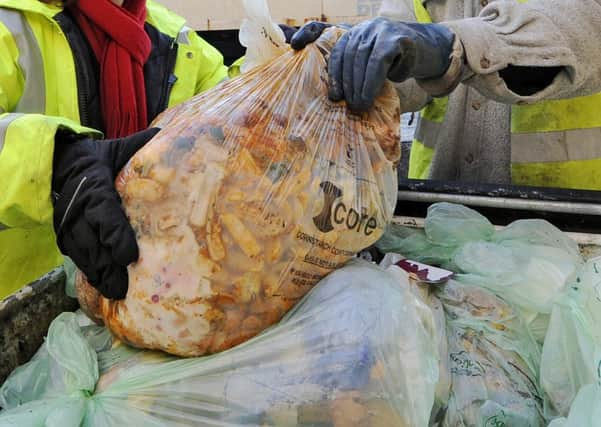Landlines: We need to stop blaming others


For example, don’t exceed speed limits and you don’t have to worry about speed cameras; follow the rules and you avoid parking fines; and I’m no great admirer of his in most ways, but what was wrong with the Prime Minister’s advice to put a sweater on to help keep warm rather than turning the heating up?
If more did it then people in TV interviews complaining about iniquitous heating bills while wearing thin blouses and T-shirts would be more convincing.
Advertisement
Hide AdAdvertisement
Hide AdIn the same way, constant complaints about the price of food would carry more weight if we didn’t waste so much of it. The most recent survey indicates that two-thirds of bagged salad is wasted, almost half of all bakery products, two-fifths of apples. I’d be surprised if, between field and rubbish bin, figures aren’t much the same for crops such as carrots, cabbage, sprouts and potatoes.
Not all the waste is in the home, of course. Because of supermarket demands for conformity one third of the salad loss is in the field and during processing, as is one fifth of bakery product loss.
It still means that we bin one third of salads bought and one quarter of bakery products and apples. That’s a lot of waste and a lot of money – an estimated £480 a year for an average household that would go a long way towards heating bills. Let’s start taking some responsibility for our own actions and stop blaming others.
Just as there’s an apparent human tendency to blame others, there’s a natural farming tendency to be against any new legislation. As a result a lot of time, effort and frustration is wasted arguing against the inevitable.
Advertisement
Hide AdAdvertisement
Hide AdElectronic identification (EID) for sheep is a good example. It was obvious from the time that the European Commission announced several years ago that individual identification of sheep would be introduced, by means of electronic ear tags, that this was a done deal. It was being introduced to improve and speed up traceability of animals because lack of both contributed greatly to the horrors of the 2001 foot and mouth outbreak in the UK.
An encouraging number of farmers have realised that EID tags could also be used to tighten up and improve breeding and management by use of these records. That was emphasised by last week’s announcement by Morrison’s supermarket that EID details for each lamb going through the main slaughterhouse supplying its stores – Morrison sells 100 per cent British lamb – will be given back to producers.
Advantages like that haven’t stopped sheep farmers arguing that EID is an imposition not a management tool. Last week the European Court also ruled that EID was in the public interest, effectively as an aid to preventing disease spread. But I’ll bet that won’t stop more wasted time and effort arguing against progress.